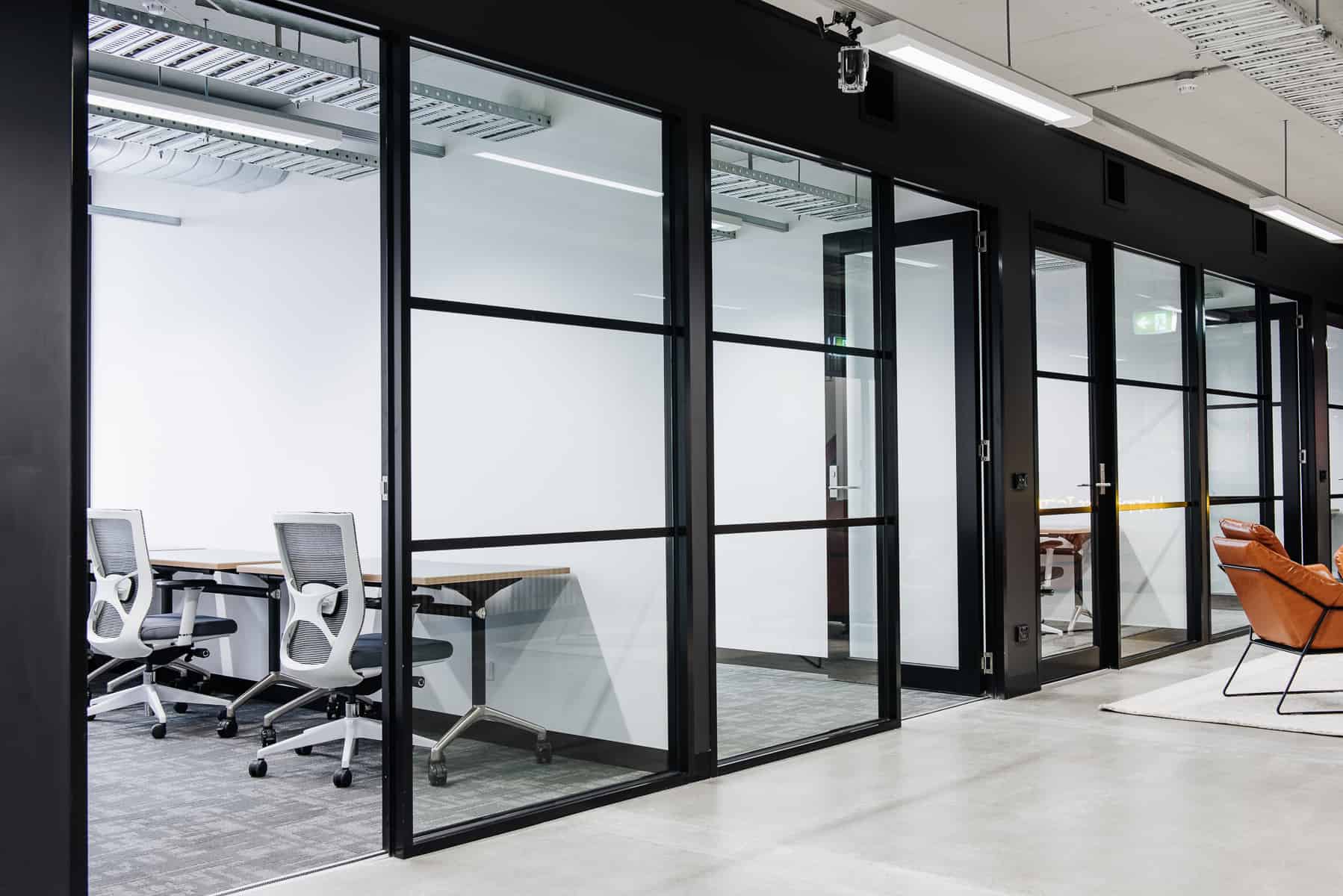When you’re moving on up in the world, growing your team, or establishing your position in the industry, the right office can make a big difference. Both serviced offices and co-working spaces offer plug-and-play flexibility and the fundamental facilities, but the cost, community and culture can significantly vary between the two.
No matter what kind of business you’re running or what you’re selling, you’ll need the bare basics like a kitchen, bathroom, desk, electricity, internet and security, and both serviced offices and co-working spaces tick those boxes.
Understanding the bigger picture differences between the two will help you work out where you should be, so you can build and succeed in a way that suits your business.
You’ll also need to consider your budget and how you see yourself growing in the near future, and whether certainty or flexibility is more important for you.
Let’s define the two.
Co-working
A co-working office is an environment shared by people who are self-employed or working for different employers, typically so as to share the cost of space, and collaborate on ideas and knowledge.
Co-working can be a combination of multiple desks and private spaces within a larger building, so while everyone has their own desk or area, everyone shares the common areas of the kitchen, bathroom and meeting spaces.
Co-working spaces are often managed by a parent company who will provide additional benefits such as community events, networking events, and business support, to nurture the culture and connection between businesses and people.
Serviced offices
A serviced office is an office or office building that is fully equipped and managed by a facility management company, which then rents individual offices or floors to individual companies.
Each office is individual, and only one business will reside in each office with its own kitchen, bathroom and facilities.
Business who lease serviced offices are responsible for their own community culture, as staff interact only with the other staff within the individual business. Serviced offices usually house corporate businesses and established companies.
Let’s consider Australia’s upcoming tax law
Effective from 2019, International Financial Reporting Standard (IFRS) 16 will change the accounting practices for occupiers of real estate, eliminating off-balance sheet reporting and requiring them to recognise most leases on balance sheets as liabilities.
Since any lease obligation of less than 12 months is exempted and can still be booked as an expense, CBRE Research expects more occupiers to increasingly look for shorter term leases and increase their use of flexible space.
Let’s look at growth possibilities.
Co-working
Co-working comes with a host of added benefits, but one of the best benefits is flexibility. If you’re in a growth phase and you’re not sure what business looks like for the next twelve months, co-working is a cost-effective, safe growth option with singular desks, multiple desks, or private offices available.
Most co-working spaces offer month-to-month leases too, so if things change rapidly, you’ve got the flexibility to adapt without breaking lease. Moving houses is ranked as the second most stressful life event, and moving an entire office isn’t any easier.
If you’re growing and expanding, being in a co-working space is a great option, as you’ll be able to add additional desks to your area one by one as you welcome new staff, or step into a private office within the same building without having to ‘move’ buildings or suburbs.
Serviced offices
A serviced office offers the same stability, and if you know where you want to be, you can walk into a lease confidently and re-sign when the time rolls around. If you move into a serviced office for four and need to take over the entire floor within a year, kudos to you and keep building!
If the other offices on your floor are vacant, you’ll be able to take over the space and continue to grow, without changing your business address or moving buildings. If the other offices are occupied however, you’ll need to navigate that challenge.
Let’s compare the pros and cons at a glance.
Co-working spaces tend to be:
- Extremely cost-effective, no matter what kind of business you run
- Flexible for growth and lease terms
- Less formal
- More social
- Open plan with various privacy options
- Located in refurbished multi-purpose buildings
- Interested in building a strong and positive community through business networking
- Creatively-vibed with a good mix of small, middle, and big businesses of all kinds
Serviced offices tend to be:
- Located in purpose-built traditional office buildings
- Set with lease terms and lock-in contracts with certainty for both parties
- More formal
- Less social
- Designed with traditional office zones, boardrooms, and cubicles
- Private and quiet
- Corporately-vibed




